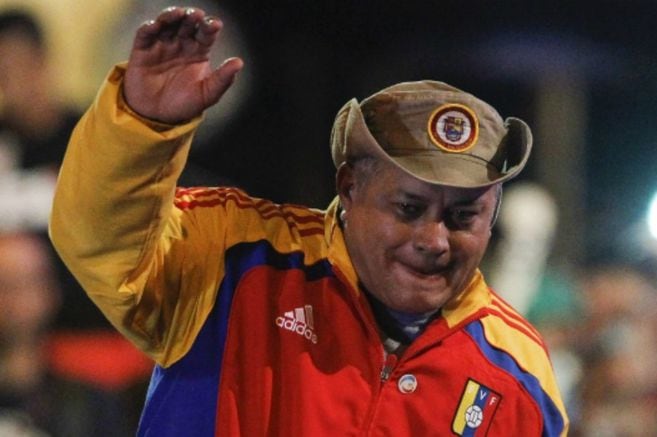
[ad_1]
The first vice-president of the United Socialist Party of Venezuela (PSUV), Diosdado Cabello, ironic at a political rally in Zulia with the possibility that wives will not feed their husbands if they don’t get up this Sunday to go to the polls.
The rallies of Diosdado Cabello, number two of Chavismo, continue to spark controversy. This Monday, during a campaign event in Zulia, he assured that: “Women will be at the forefront of this battle. I know it is the woman who gets up early and says at home: “to get up you have to go and vote”. Of course, and those who don’t vote don’t eat. A quarantine is applied to him and he does not eat ”, he expressed amid the laughter of the participants in a ceremony held in the municipality of Zulia di Bolívar.
At that same rally, Diosdado called on his supporters to vote “with discipline” and many critics pointed out that during the meeting they did not comply with the measures to prevent COVID-19. Cabello, who encouraged the assembled crowd “to go out and vote with great discipline” and asked his supporters if they already know where to vote.
The number two of Chavismo arrived at the gesture between the hugs of the militants of the United Socialist Party of Venezuela (PSUV) who pushed him, spoke a few centimeters and clapped his hands without respecting any safety distance.
Defeat the opposition
Cabello believed that, in this way, the opposition will be defeated, both “the one that calls not to vote, because one goes to vote”, and “the one that participates because it has not prepared itself, because it also bets on the coup. “. Those who participated in the electoral campaign demanded that “no one is wrong” and, therefore, should vote for the PSUV or its allied parties.
Many of these parties like Patria Para Todos (PPT) or Unified Tendencies to Reach the Organized Revolutionary Action Movement (Tupamaro) were also intervened by the TSJ, whose members were elected in an express process and are considered open supporters of chavismo.
See more: the keys of the elections in Venezuela on 6 December
The Communist Party of Venezuela (PCV), a traditional ally of the PSUV and which Cabello did not mention directly, formed an alliance that includes several Chavista organizations, the People’s Revolutionary Alliance (APR), backed by the directives of the PPT and Tupamaro who they were chosen by the militants.
Diosdado Cabello, the eternal of Chavismo
Diosdado Cabello, president of the Constituent Assembly and candidate in the parliamentary elections on December 6, is 57 years old and is one of the most respected and charismatic men in Chavismo, with an ability to attract attention that no one dares to deny.
With an agile verb and a quick mind, Cabello leaves no one indifferent. Every Wednesday he captures the attention of millions of Venezuelans with his program Con el Mazo Dando, which airs in prime time on the public television channel VTV and features the “showman” within the politician.
The feelings that Chavismo’s number two, a career soldier, arouses are as varied as love or hate, laughter or tears, applause or whistles, praise or criticism, but the reaction is assured. And he knows it. And it feeds it to the extreme.
His long political career supports him in running for any position, as he has gone through almost everyone, including the Presidency, which he held briefly for a few hours between 13 and 14 April 2002 to restore constitutional order after the coup against the then president Hugo Chávez.
See more: The most powerful Chavista clans in Venezuela
He had to assume the highest position by constitutional mandate, being vice president of the executive at the time, as Chávez was confined to the Venezuelan island of La Orchila, which made his immediate return to command impossible. Upon returning to Caracas, the president regained power from the hands of his dolphin and fleeting president.
Cabello held the Interior and Justice, Public Works and Housing and Infrastructure portfolios. In addition, he was director of the National Telecommunications Commission (Conatel), president of the Parliament, the National Constituent Assembly (ANC) and governor of the state of Miranda.
Currently, although he does not hold a position in Nicolás Maduro’s executive, he continues to be one of the strongest men in Venezuelan politics, as president of the ANC and vice president of the United Socialist Party of Venezuela (PSUV), in power since 1999.
.
[ad_2]
Source link